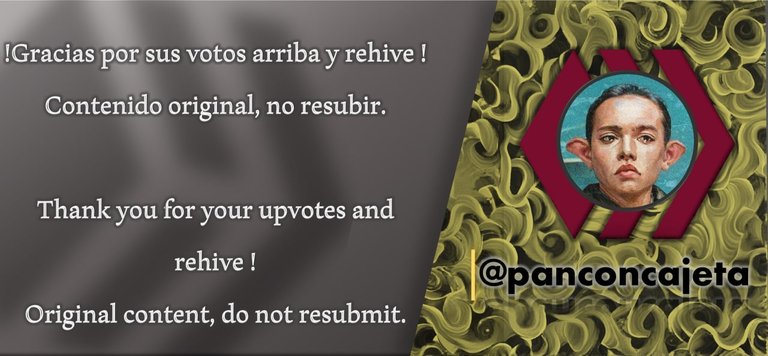
Vector de Tecnología creado por freepik - www.freepik.es
Los derechos reales son una categoría de derecho civil que protegen la propiedad sobre cosas. Tienen una existencia independiente de la persona que ejerce el derecho, y no están sujetos a las normas sobre contratos ni obligaciones. La propiedad sobre las cosas puede ser objeto de varios derechos reales, como la propiedad, la posesión, el usufructo y la servidumbre. Cada uno de estos derechos tiene características propias que los diferencian entre sí.
En el mundo virtual del metaverso, los derechos reales también tienen importancia y están regulados por las leyes del lugar. Sin embargo, dado que el metaverso es un mundo en constante evolución, con nuevos avatares, objetos y zonas en continua construcción, los desafíos jurídicos son mayores que en el mundo real. En este artículo exploraremos algunos de los principales problemas jurídicos que surgen en relación con los derechos reales en el metaverso.
La propiedad
La propiedad es el derecho que permite a una persona exclusivamente controlar y gozar de una cosa. Es el derecho fundamental sobre las cosas y tiene carácter absoluto e ilimitado. La propiedad es intransferible: una persona nunca puede cederla a otra sin su consentimiento.
En el metaverso, la propiedad se protege mediante dos documentos fundamentales: el contrato de compraventa y el contrato de arrendamiento. Ambos contratos están regulados por la ley vigente en el lugar donde se celebren. En caso de conflicto entre ambas leyes, se aplicará la ley del lugar donde se encuentre la propiedad física (el inmueble sobre el cual recae el derecho).
El contrato de compraventa es el instrumento jurídico mediante el cual se transfiere la propiedad sobre un objeto material a cambio de un precio determinado. El contrato debe reunir las siguientes condiciones básicas: capacidad para contratar; objeto cierto y determinado; causa lícita; consentimiento libre e informado de las partes; y forma escrita o solemnidad equivalente (contrato notarial o registral). En caso de incumplimiento, las partes podrán reclamar judicialmente lo pactado en el contrato.
El contrato de arrendamiento es el instrumento jurídico mediante el cual se da en usufructo temporal a un tercero (el arrendatario) la propiedad sobre un inmueble a cambio del pago periódico de un canon social (renta). El contrato tiene carácter oneroso (el arrendatario paga por tener el usufructo) e innominado (el arrendatario no tiene derecho a nombrar al dueño). La duración máxima del contrato es 50 años, renovable indefinidamente. En caso de incumplimiento, las partes podrán reclamar judicialmente lo pactado en el contrato.
La posesión
La posesión es el derecho que permite a una persona detentar materialmente una cosa con ánimo de dueño. Es un derecho real menor que otorga al poseedor la facultad de actuar como dueño respecto del objeto poseído (venderlo, hipotecarlo, etc.). El poseedor tiene pleno dominio sobre la cosa poseída y puede excluir al titular del derecho real superior sobre ella (propietario, usufructuario, etc.). Además, goza del ius vindicandi: puede utilizar todos los medios legales para recuperar su posesión cuando sea turbada por terceros.
En el metaverso, la posesión se protege mediante dos documentos fundamentales: el contrato de compraventa y el contrato de arrendamiento. Ambos contratos están regulados por la ley vigente en el lugar donde se celebren. En caso de conflicto entre ambas leyes, se aplicará la ley del lugar donde se encuentre física-mente la cosa poseída (el inmueble sobre el cual recae el derecho).
El contrato de compraventa es el instrumento jurídico mediante el cual se transfiere legalmente la posesión física sobre un objeto material a cambio de un precio determinado. El contrato tiene carácter bilateral (las dos partes intervienen activamente), oneroso (el comprador paga por adquirir la posesión) e innominado (el comprador no tiene derecho a nombrar al vendedor). La forma escrita o solemnidad equivalente es obligatoria (contrato notarial o registral). En caso de incumplimiento, las partes podrán reclamar
judicialmente lo pactado en el contrato.
Los derechos reales y propiedades en el metaverso plantean desafíos jurídicos de primer orden, ya que la definición de qué es y qué no es propiedad en un mundo de fantasía es muy complicada. Por ejemplo, si un jugador construye una casa en el mundo virtual, ¿es propietario de esa casa? ¿O solo tiene el derecho de uso sobre ella? ¿Y qué pasa con objetos virtuales, como dinero o armas? ¿Son propiedad del jugador que los posee? Estas preguntas son solo algunas de las muchas que se han generado en torno a este tema.
Además, existen otros desafíos jurídicos vinculados a la propiedad en el metaverso. Por ejemplo, si un jugador es expulsado de un juego, ¿Pierde también sus objetos virtuales? O, aún más complejo, ¿Qué sucede si dos jugadores terminan peleándose y uno destruye el personaje del otro? ¿Puede el que pierde demandar al que ganó la pelea por daños y perjuicios?
Todas estas cuestiones son objeto de debate en la actualidad y generan inquietud entre abogados, artistas, creadores de contenido y jugadores en general. Sin embargo, todavía no hay respuestas claras y muchos aspectos de la propiedad en el metaverso permanecen sin resolver.
Rights in rem are a category of civil law that protect ownership over things. They have an existence independent of the person exercising the right, and are not subject to the rules on contracts and obligations. Ownership over things may be the subject of several real rights, such as ownership, possession, usufruct and easement. Each of these rights has its own characteristics that differentiate them from each other.
In the virtual world of the metaverse, real rights also have importance and are regulated by the laws of the place. However, since the metaverse is a constantly evolving world, with new avatars, objects and areas under continuous construction, the legal challenges are greater than in the real world. In this article we will explore some of the main legal issues that arise in relation to real rights in the metaverse.
Property
Property is the right that allows a person exclusively to control and enjoy a thing. It is the fundamental right over things and has an absolute and unlimited character. Property is non-transferable: a person can never assign it to another without his consent.
In the metaverse, ownership is protected by two fundamental documents: the contract of sale and the lease. Both contracts are regulated by the law in force in the place where they are concluded. In case of conflict between the two laws, the law of the place where the physical property (the real estate over which the right is vested) is located will apply.
The contract of sale is the legal instrument by means of which the ownership of a material object is transferred in exchange for a determined price. The contract must meet the following basic conditions: capacity to contract; certain and determined object; lawful cause; free and informed consent of the parties; and written form or equivalent solemnity (notarial or registry contract). In the event of default, the parties may make a judicial claim for what was agreed in the contract.
The lease contract is the legal instrument by means of which the ownership of real estate is given in temporary usufruct to a third party (the lessee) in exchange for the periodic payment of a social canon (rent). The contract is onerous (the lessee pays for having the usufruct) and unnamed (the lessee does not have the right to name the owner). The maximum duration of the lease is 50 years, renewable indefinitely. In case of default, the parties may claim judicially what was agreed in the contract.
Possession
Possession is the right that allows a person to materially hold a thing as owner. It is a minor real right that gives the possessor the power to act as owner with respect to the object possessed (sell it, mortgage it, etc.). The possessor has full dominion over the thing possessed and can exclude the holder of the superior real right over it (owner, usufructuary, etc.). Moreover, he enjoys ius vindicandi: he can use all legal means to recover his possession when it is disturbed by third parties.
In the metaverse, possession is protected by two fundamental documents: the contract of sale and the lease. Both contracts are regulated by the law in force in the place where they are entered into. In case of conflict between the two laws, the law of the place where the thing possessed (the real estate on which the right falls) is physically located will apply.
The contract of sale is the legal instrument by means of which the physical possession of a material object is legally transferred in exchange for a determined price. The contract is bilateral (both parties are actively involved), onerous (the buyer pays for acquiring possession) and unnamed (the buyer does not have the right to name the seller). The written form or equivalent solemnity is mandatory (notarial or registry contract). In case of non-performance, the parties may claim in court for
the parties may claim judicially what has been agreed in the contract.
Real rights and property in the metaverse pose legal challenges of the first order, since the definition of what is and what is not property in a fantasy world is very complicated. For example, if a player builds a house in the virtual world, does he own that house? Or does he only have the right to use it? And what about virtual objects, such as money or weapons? Are they the property of the player who owns them? These questions are just some of the many that have been generated around this topic.
In addition, there are other legal challenges linked to ownership in the metaverse. For example, if a player is kicked out of a game, does he also lose his virtual objects? Or, even more complex, what happens if two players end up fighting and one destroys the other's character? Can the one who loses sue the one who won the fight for damages?
All these issues are currently being debated and are causing concern among lawyers, artists, content creators and gamers in general. However, there are still no clear answers and many aspects of ownership in the metaverse remain unresolved.
Translated with www.DeepL.com/Translator (free version)

Imagen hecha por @fclore22